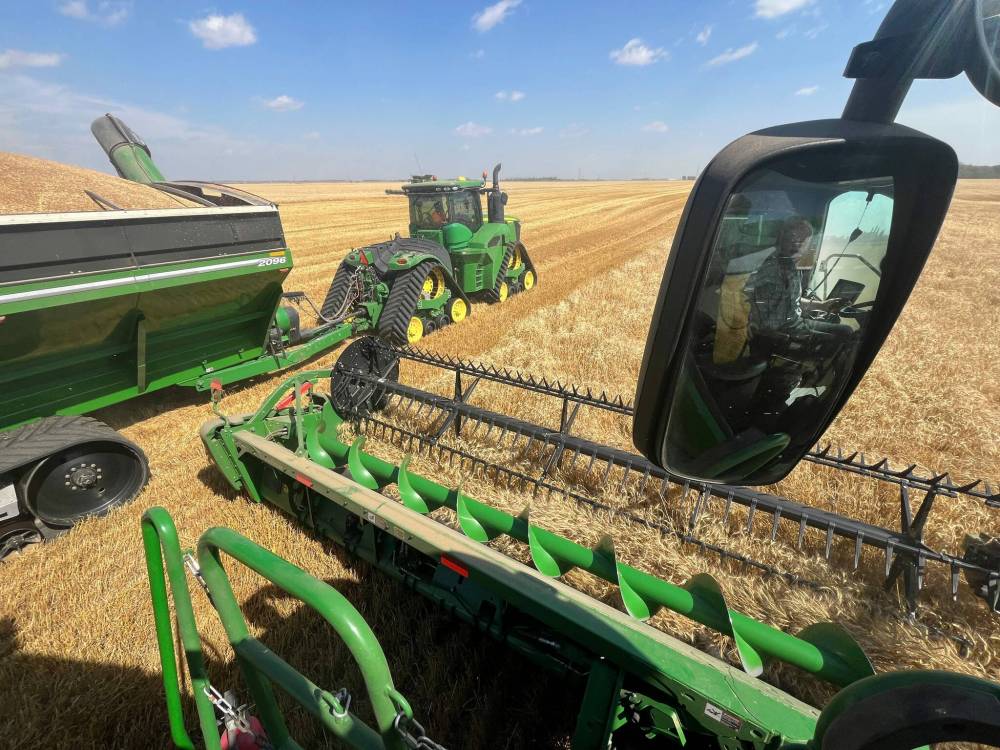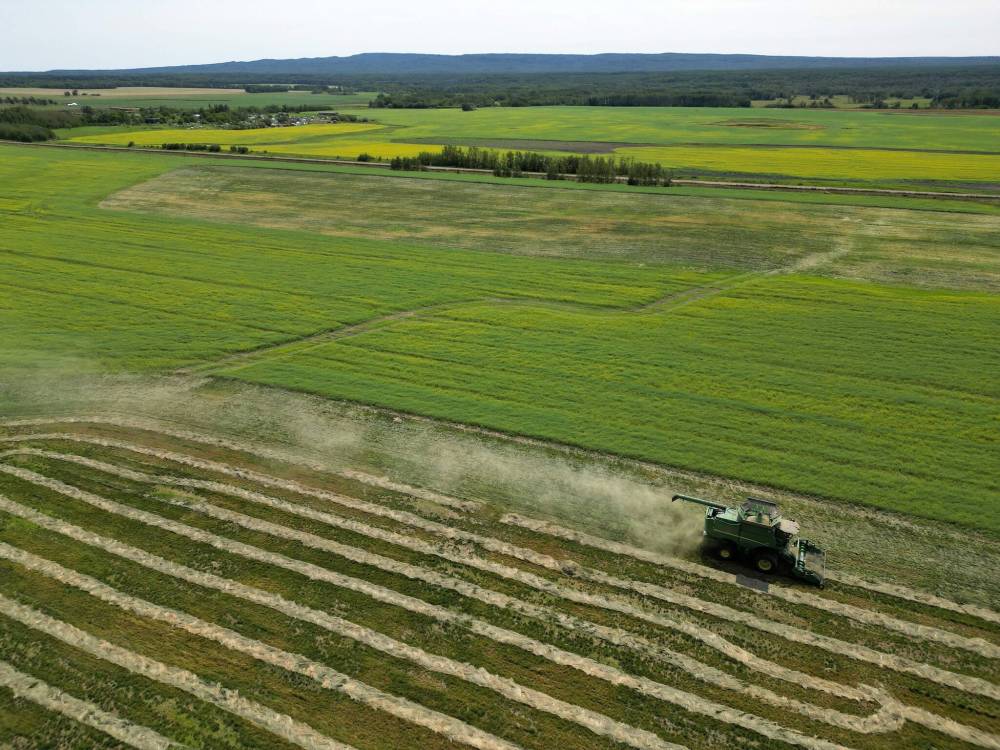Canadian farmland prices keep growing
Values strong despite high borrowing rates, sluggish commodities: Farm Credit Corp. mid-year report
Advertisement
Read this article for free:
or
Already have an account? Log in here »
To continue reading, please subscribe:
Monthly Digital Subscription
$0 for the first 4 weeks*
- Enjoy unlimited reading on winnipegfreepress.com
- Read the E-Edition, our digital replica newspaper
- Access News Break, our award-winning app
- Play interactive puzzles
*No charge for 4 weeks then price increases to the regular rate of $19.00 plus GST every four weeks. Offer available to new and qualified returning subscribers only. Cancel any time.
Monthly Digital Subscription
$4.75/week*
- Enjoy unlimited reading on winnipegfreepress.com
- Read the E-Edition, our digital replica newspaper
- Access News Break, our award-winning app
- Play interactive puzzles
*Billed as $19 plus GST every four weeks. Cancel any time.
To continue reading, please subscribe:
Add Free Press access to your Brandon Sun subscription for only an additional
$1 for the first 4 weeks*
*Your next subscription payment will increase by $1.00 and you will be charged $16.99 plus GST for four weeks. After four weeks, your payment will increase to $23.99 plus GST every four weeks.
Read unlimited articles for free today:
or
Already have an account? Log in here »
Hey there, time traveller!
This article was published 11/10/2024 (418 days ago), so information in it may no longer be current.
They may not have yet entered the same stratosphere as the Vancouver or Toronto housing market, but prices for farmland in Western Canada keep climbing.
In Farm Credit Corp.’s recent mid-year farm values review, the year-over-year increase in average price did not rise at the same pace as the previous two years. High borrowing rates (higher than conventional mortgages for urban residential properties) and low commodity prices might have suggested a more sluggish market.
However, FCC chief economist J.P. Gervais noted: “It’s not much of a slow down.”

Reflected in the rear-view mirror, Neil Waldner of the Hillside Hutterite Colony watches closes as his load of wheat is unloaded on an 80-acre field north of Brandon on Wednesday afternoon. (Matt Goerzen/The Brandon Sun)
Canadian cultivated farmland values rose by an average of 5.5 per cent in the first half of 2024. The 12-month period of July 2023 to June 2024 was marked by a 9.6 per cent increase.
That’s only slightly below the 12.8 per cent and 11.5 per cent year-over-year increases experienced in 2022 and 2023, respectively.
From Gervais’s perspective, increasing valuations are not going to reverse any time soon.
“The end result of what we are seeing in the farmland market is reflective of the outlook of business in agriculture and food production,” he said Friday. “Crop producers want to grow their operations and they still see the demand for what they grow going up.”
While price ranges and economic conditions differ region to region, the fact prices continued to rise even while commodity prices lagged is likely an indication the trend is going to continue.
“Producers are dealing with low commodity prices right now and there is plenty of supply with no major supply shock that would push prices up … but the big picture is still very positive (for agricultural producers),” said Gervais, adding he does not dismiss the negative effects of supply chain disruptions such as the recent rail and port workers labour disputes.
Farmland in Manitoba can go from $3,000 to $13,500 per acre these days, according to the report. And, like just about every other vertical market in North America, excess capital from private equity is likely stimulating some of the increases.
Justin Goritz, a real estate broker with Sequoia 1 Real Estate in St. Andrews, said he doesn’t see a lot of those kinds of transactions in southern Manitoba. However, he said there are potential sellers who’d like to attract that interest to secure top dollar for their properties.
At the same time, some sellers will provide a hometown discount to young farmers trying to get into the business, Goritz added.
“There is a little love language out there from those selling to someone who is a local, young family getting started wanting to pursue farming,” he said. “If they see that the buyer is not going to be an investor who’s just buying to capitalize on it, but a young family, then they’ll set the price at a more manageable level.”
Gervais said he’s confident 90 per cent of such transactions are one family farm buying another.
There are efficiencies to be gained by having operations with ever larger acreages.

Harvest has begun in Westman. A combine works a field north of Riding Mountain National Park on Friday afternoon. (Tim Smith/The Brandon Sun)
“Profit markets are tight, land is very expensive, there is no denying that,” said Gervais. “But there are entrepreneurs on the Prairies who understand that they are growing crops and food that the world is going to need more of.”
That’s not to say the recent increases in the cost of farmland is not a pain point. “If the prices go up too high, the only people who can afford to buy are the neighbours who already own 20,000 acres,” Goritz said.
Brenna Mahoney, general manager of Keystone Agricultural Products, said high prices don’t make Manitoba farmers better farmers.
“Higher land values do not guarantee increased production, especially given that farmers are price takers, not price makers,” she said.
About 80 per cent of total asset value on a farm is the land. While production innovation and a wave of new agricultural technology — which, Gervais said, is “just around the corner” — will serve to further increase land values, it will also become another increase on the cost side for farmers.
“Rising land prices often equate to higher property taxes, especially when farmers are already paying a disproportionate share of education property taxes,” Mahoney said.
“Generally speaking, the only benefit to rising land prices is when a farmer is selling their property, which often takes years of planning for the succession of their operation.”
martin.cash@freepress.mb.ca

